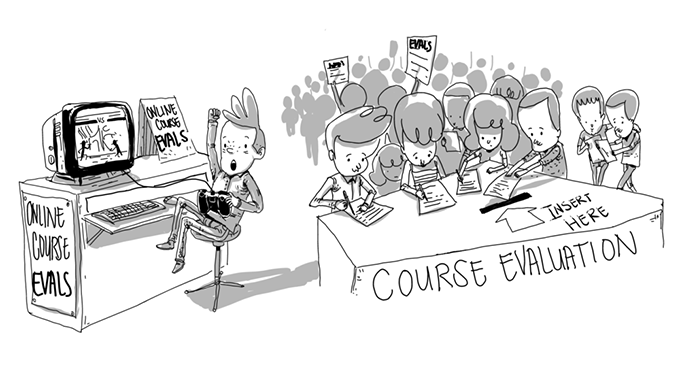
‘I am always curious as to how students might react to what I have been trying to do’
I was somewhat sceptical when student feedback forms were first introduced, back in the Jurassic days before email. Not many students could be bothered to collect a physical form and fill it in, and some of those who did used it as an opportunity to say some pretty bizarre things. Several colleagues were propositioned, and a friend who is one of Italy’s most distinguished medics was enraged to be told that he should have his hair cut because he looked like a hippy.
But over time I have come to see student feedback as very useful – provided that it is taken seriously by all parties, and provided also that it is not used as a blunt instrument by management (a real danger now that teaching as well as research are criteria for promotion).
Feedback is particularly useful when comments highlight the unanticipated needs of a contemporary student cohort. It is all too easy for academics to lose sight of generational differences – not merely regarding life experiences (current students see the Vietnam War as ancient history, whereas I vividly remember taking part in student protests against it) but also in terms of prior learning experience.
For instance, I recently ran a special seminar on how to read ambiguous texts. This was a direct response to the number of student feedback forms saying that they needed more help with this. Close reading – taking a text to pieces – was something my generation learned to do at school but is a skill that not all literature students have today. Add to the mix the international dimension of today’s student body and the gap between what students and lecturers share in terms of information, skills and interests can be very wide indeed.
Of course, there are always minor aberrations on evaluation forms, and evidence is lacking as to whether the feedback can actually improve teaching quality. Nevertheless, I believe that it can serve as a guideline to enable each of us to think harder about what we are doing. If feedback is positive then this can be very encouraging, particularly if a teacher is seeking to do something innovative and different. But when a whole group complains about the same thing and gives roughly the same low scores, we need to take note and act accordingly.
Perhaps we need to review the material content of what we are teaching, but it is more likely that we need to rethink what we actually do during a lecture, and reflect on why some students feel that we are not communicating effectively. Concerns expressed can include too much informality in presentation – such as wandering around in a seminar room – overcomplicated or illegible PowerPoint presentations, too much material crammed into one session, or unrealistic assumptions about basic student knowledge.
Several colleagues have told me that they have a moment of dread when the feedback forms come in, which is usually followed by a sense of relief. I can’t say that’s how I feel. Rather, I am always curious as to how students might react to what I have been trying to do. Sometimes I am affronted, as Beatrix Potter’s Mrs Tabitha Twitchett used to say, but student feedback is surely an important part of the process of self-appraisal, with which all professionals should be engaged.
Feedback from students might sometimes offend our vanity, but it is a valuable resource that can help us to know ourselves better.
Author Bio: Susan Bassnett is Professor of comparative literature at the University of Glasgow and Professor Emerita of comparative literature at the University of Warwick.
